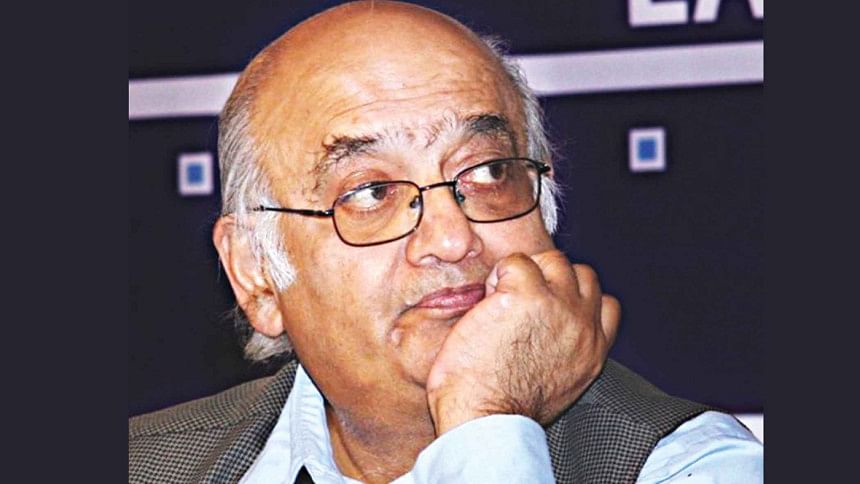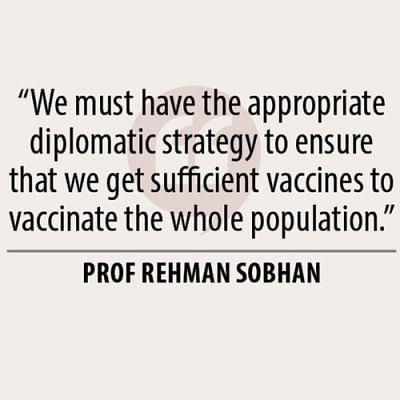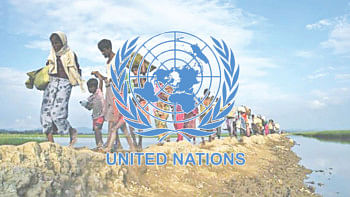Funds abundant, but ministry can’t spend


Money was never a problem in combatting the public health crisis brought on by the coronavirus pandemic but the health ministry was unable to utilise the funds, said a top bureaucrat yesterday.
"I watched with surprise that the health ministry could not spend a major portion of the funds we gave them amid the pandemic," said Abdur Rouf Talukder, senior secretary to the finance division, at a seminar organised by the Bangladesh Institute of Development Studies (BIDS) styled "Normalising Masks: Health and Economic Implications".
Talukder is in charge of releasing and managing funds for the finance ministry.
In fiscal 2020-21, at least Tk 29,247 crore was allocated for the health ministry, and in the first 10 months, about a quarter of the sum was spent. There was another Tk 10,000 crore in block allocation for the sector, and that too sat idle.
"For the health sector, resource is not a problem, as per the instruction of the prime minister. The problem is management, the problem is in distribution, the problem is in efficiently using the resource."
In the next fiscal year, Tk 32,731 crore has been assigned for the health sector.
"Since the pandemic began, whenever the health ministry or the agricultural ministry asked for funds and whatever amount, we never turned them away. We cut the budget elsewhere and diverted the funds to them."
The government's priority is mass vaccination and it is hunting high and low for jabs to inoculate the population as early as possible, Talukder said.
"We have no shortage of funds."
The development partners have provided upwards of $2 billion for procuring vaccines, which is sitting in the pipeline, while from the government's own budget, there is another $1.2 billion.
"It's a sellers' market. We are ready to buy vaccines from anywhere. We are knocking at all doors -- we are leaving no stone unturned. We are giving all-out effort," Talukder added.
Mashiur Rahman, the economic affairs advisor to the prime minister, went on to defend the health ministry's performance during the pandemic.
"Coronavirus is totally new and the health ministry is trained in facing health-related issues during normal times and in giving service."
The health ministry's skill in dealing with the pandemic is not at "an expected level".
Some questions have arisen regarding the weakness and transparency of procurement, but the contribution of the minister and the officials of the programme must be considered too.
He also touched upon the topic of the new poor.
"The government does not have the figure for the new poor created by the pandemic," he said, adding that all needy people should be in the listing process.
Sufficient allocation was made for the health sector and there is a block allocation too, said Mohammad Jainul Bari, secretary of the planning division.
He went on to state that the planning ministry will prioritise the health sector when approving projects.
"Vaccinating everyone is desirable. We must have the appropriate diplomatic strategy to ensure that we get sufficient vaccines to vaccinate the whole population," said Rehman Sobhan, chairman of the Centre for Policy Dialogue.
The delivery of masks to the whole population is a doable challenge, both resource and institutional capacity-wise, he added.
Earlier, Ahmed Mushfiq Mobarak, a professor of economics at Yale University, made the keynote presentation on "How to Normalise Mask Usage: A Cost-Effective Policy Response to Stop the Spread of Covid".
They conducted a cluster-randomised trial of community-level mask promotion in rural Bangladesh involving 341,830 adults in 600 villages.
They also employed a series of strategies to promote mask use, including free household distribution of surgical or cloth masks, distribution and promotion at markets and mosques, mask advocacy by imams during Friday prayers, role modelling by local leaders, and monitoring of whether the villagers were wearing masks properly.
The intervention tripled mask use among villagers from 13 percent to 42 percent.
This tripling of mask use was sustained during the 10 weeks of surveillance, which includes a period after intervention activities ended.
Physical distancing also increased by 5.2 percentage points, he added.
The fact that only 12 or 13 percent of people use the mask in villages is a piece of alarming information, said Binayak Sen, director-general of BIDS.
"We have to show our urgency. We cannot sit idle when another wave is coming towards us," he added.
Nothing works unless it is taken door-to-door, said Firdausi Qadri, emeritus scientist of the Infectious Diseases Division of icddr,b, regarding mask use and behavioural change in people.
Large scale implementation is possible only after people are convinced that they need it, he added.
Lockdown is quite ineffective because of a lack of understanding on how it can protect everyone from coronavirus, said Asif Saleh, executive director of Brac.
The country is struggling with regards to vaccination due to problem in the supply chain. There is also vaccine hesitancy and misinformation.
Given the possibility of new waves coming in with newer variants, the country's health infrastructure will come to a breaking point.
"This is why it is important to come up with a low-cost solution. It is clearly evident from what is happening in the bordering districts that this wave will have rural spread."
Some 42 non-governmental organisations will distribute 1.30 crore reusable surgical and cloth masks among ultra-poor families of 34 districts with the view to reducing the transmission rate and mask-wearing behavioural change, Saleh said.
The NGOs did not get money from the government for the initiative.
"Blanket mask distribution will need about Tk 25 crore -- we hope will get money from the government," he added.
In response, Talukder said Tk 25 crore is not a big amount. If the health ministry seeks, the finance ministry would give the money, he added.

 For all latest news, follow The Daily Star's Google News channel.
For all latest news, follow The Daily Star's Google News channel. 



Comments